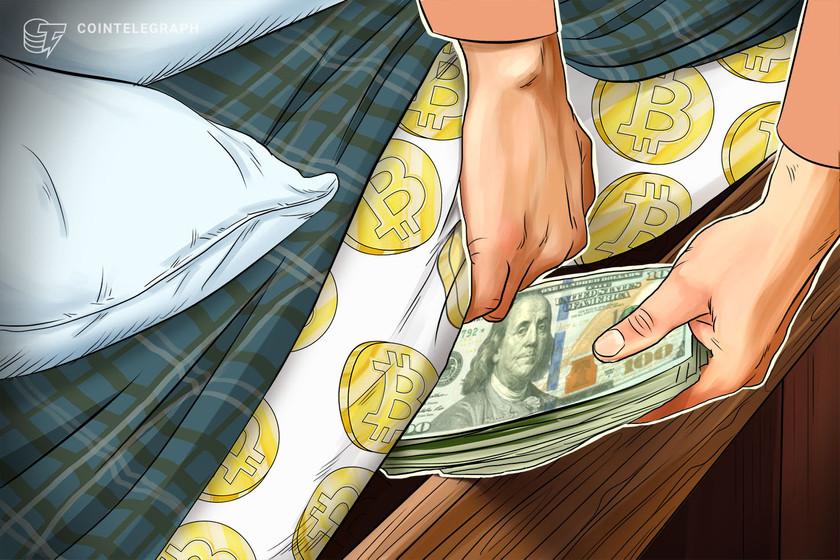Pension funds are getting in on Bitcoin, according to Grayscale

In fact, CEO Michael Sonnenshein says they’re fueling Grayscale’s massive growth.
Grayscale’s newly-appointed CEO Michael Sonnenshein told Bloomberg Thursday that pension funds and endowments are investing actively into the Grayscale family of funds.
He explained:
“We’ve started to see participation not just from the hedge fund segment, which we’ve long seen participation from, but now it’s recently from other institutions, pensions and endowments […] The sizes of allocations they are making are growing rapidly as well.”
Grayscale has been at the center of the Bitcoin buying spree and now holds roughly 3% of the BTC in circulation. The fund manager continues to accumulate large positions in the digital asset as more institutional investors seek exposure to Bitcoin.
Its total assets under management, or AUM, have eclipsed $27 billion across ten different products. The Grayscale Bitcoin Trust remains by far its most popular product with over $23 billion in AUM. Grayscale’s Ethereum trust is currently valued at around $3.6 billion, while its Digital Large Cap Fund holds nearly $339 million.
01/07/21 UPDATE: Net Assets Under Management, Holdings per Share, and Market Price per Share for our Investment Products.
Total AUM: $27.4 billion$BTC $BCH $ETH $ETC $ZEN $LTC $XLM $XRP $ZEC pic.twitter.com/Z3Q1EZXGeg
— Grayscale (@Grayscale) January 7, 2021
Pension funds are following a hoard of institutional buyers who began entering the Bitcoin market in 2020. A survey conducted by Fidelity Investments last year found that 36% of financial institutions across the U.S. and Europe said they own cryptocurrencies or derivatives. Over a quarter of the respondents reported holding Bitcoin, while 11% said they own Ethereum.
The institutional influx into cryptocurrency and Bitcoin (BTC) is intensifying, according to Grayscale Investments, with pension funds and endowments among the most recent entrants into the space.
Grayscale’s aggressive BTC buying is likely contributing to the digital currency’s rapid price appreciation. With more Bitcoin taken out of circulation, the already scarce asset is becoming even more difficult to come by. Sonnenshein explains:
“This is a verifiable scarce asset and so when there are mechanisms that are removing them from circulation, that’s inherently making it an even scarcer asset.”



